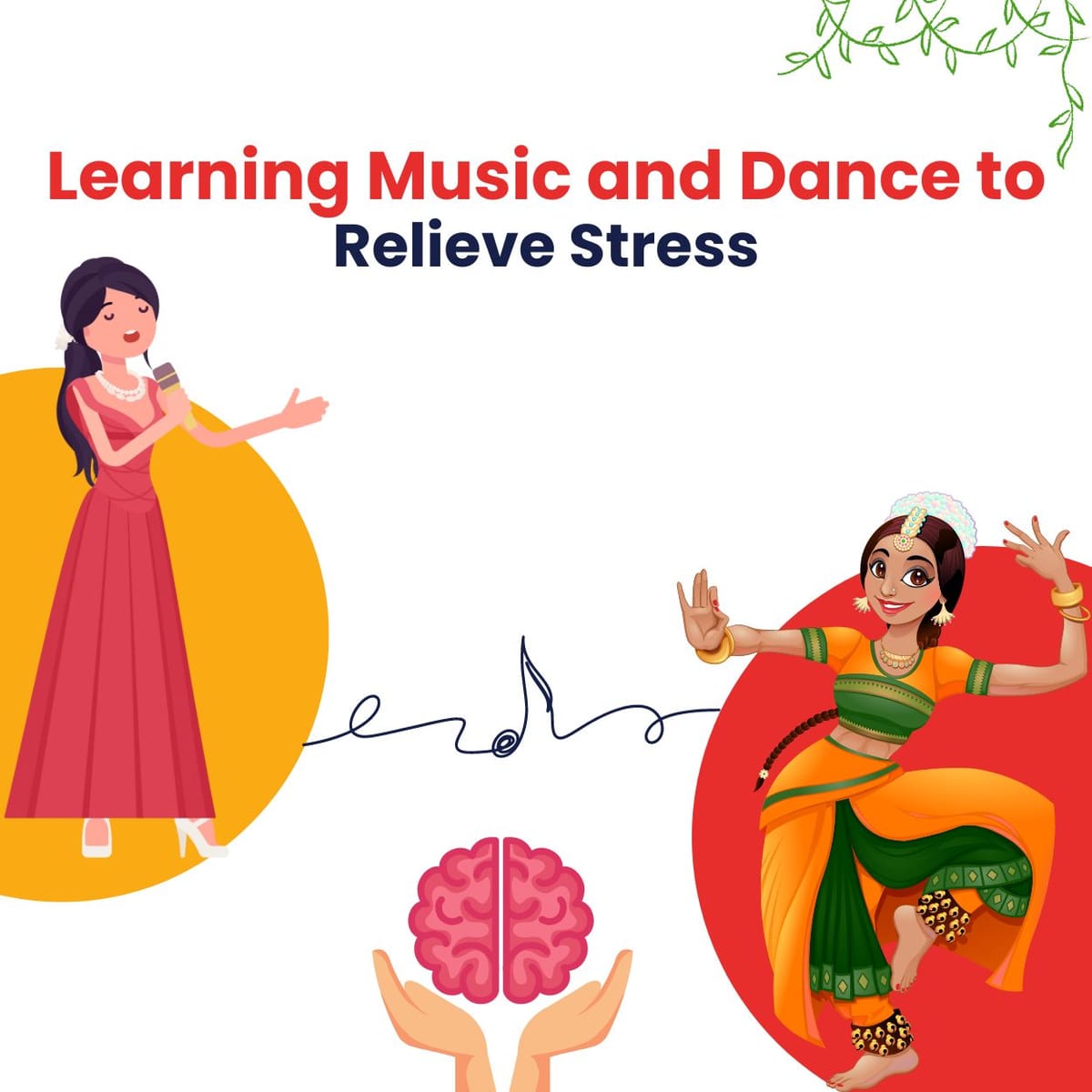
Table of Contents
Did you know the biggest benefit of learning music and dance?
It Reduces Stress. 🎶
But that’s not all—learning performing arts like music and dance also:
- Reduces anxiety
- Improves overall mental wellbeing
And scientific research backs this up.
Here, let us break down for you what scientific research has shown about music education:
1. Benefits of Learning Music😌
Learning music or dance is not easy. It is very difficult and doing something difficult helps you build resilience.
Each note you play or sing or each step you learn takes you a little out of your comfort zone and makes you STRONGER. 💪
As you step out of your comfort zone, and tackle something that seems complex yet fulfilling, your brain acknowledges this act of triumph. And it goes, “wow, did I really do that? I am so much stronger than I thought.”🧠
There is more though.
Both music and dance require you to be present in the moment. It helps you channel your scattered thoughts into something creative, like a song or a dance routine.
By doing so, you become more present and mindful, realizing that the challenges you face aren’t as overwhelming as they once seemed. 🧘
Both activities offer a break from overthinking, pulling you out of your stress bubble and into a space of creativity and self-expression.
And the repetitive movement and rhythm ground you, much like a form of moving meditation, making it easier to unwind.
Plus, playing or singing a song or dancing your heart out feels incredibly rewarding. And it’s a skill you can flex and impress everyone. And that is how music and dance relieve stress, reduce anxiety and improve your mental well-being.
2. Research on Benefits of Learning Music & Dance📚
Scientific studies have consistently shown that music and dance reduce anxiety and improve mood. 🎉
For example, research has found that music helps lower levels of the stress hormone cortisol while increasing serotonin (the feel-good hormone). Similarly, dance therapy has been shown to reduce symptoms of depression and anxiety, according to a report in Frontiers in Psychology.
When you sing, play, or move to music, your brain releases endorphins—the same hormones that make you feel good after a workout. Plus, dancing or making music with others adds a social element, which further boosts your mental well-being.
And let’s be honest—dancing around your living room, singing at the top of your lungs, or playing your favorite song feels incredibly rewarding, right?
3. Simple Ways to Get Started 🎶💃
Here’s the best part: You don’t need to be a professional to enjoy the benefits of music and dance. You can start small:
- Create a playlist of your favorite calming songs and listen when you need to relax. Even listening to music lifts your mood because of the ISO principle.
- Take short music and dance breaks throughout your day—just a few minutes can shift your mood.
Remember, both music and dance are meant to be enjoyable and freeing. You can go at your own pace, and as you do, you’ll find that these activities help you manage stress, feel happier, and stay connected to the present moment.
